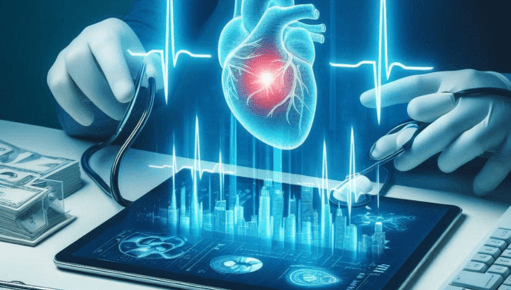An electrocardiogram (ECG) is one of the most common and essential tests to assess heart health. This non-invasive procedure records the electrical activity of the heart, helping doctors detect various heart-related conditions. In Delhi, access to healthcare facilities has improved remarkably, making advanced diagnostics like ECG tests widely available. If you’re curious about the ECG Test in Delhi , this article provides a comprehensive overview of what the test entails, why it’s necessary, and how you can get one.
What is an ECG Test?
An ECG test is a simple, painless procedure that measures the heart’s electrical activity. With every beat, an electrical impulse moves through the heart, causing it to contract and pump blood. The ECG records these impulses, providing valuable information about the heart’s rhythm and function.
The test captures electrical signals in the form of waves, which are analyzed by healthcare professionals to determine if the heart is functioning normally or if there are irregularities that may indicate a condition such as arrhythmia, heart attack, or other cardiovascular diseases.
How Does an ECG Work?
During the test, small electrode patches are placed on various points of your body—typically on the arms, chest, and legs. These electrodes detect the electrical signals generated by your heart and record them as waves on an ECG machine. The test itself lasts only a few minutes and can be performed in a hospital or diagnostic center.
The resulting waveforms provide a visual representation of the heart’s electrical activity, showing its rate and rhythm. Doctors interpret these waveforms to identify any abnormalities.
Types of ECG Tests
There are several variations of the ECG test, each designed for specific diagnostic purposes:
- Resting ECG: This is the most common form, where the test is conducted while the patient is at rest. It’s typically used to detect heart issues like arrhythmia or blockages.
- Stress ECG: In this type, the test is conducted while the patient is exercising, usually on a treadmill or stationary bike. It helps assess how well the heart functions under physical stress.
- Holter Monitoring: A portable ECG device is worn for 24-48 hours to monitor heart activity continuously. This is useful for detecting irregular heartbeats that may not appear during a short resting ECG.
- Event Monitoring: Similar to Holter monitoring, but the device is worn for an extended period, and it records only when the patient experiences symptoms like chest pain or palpitations.
Why is an ECG Test Important?
The ECG test is crucial for diagnosing several heart conditions, including:
- Arrhythmias: Irregular heartbeats that can range from harmless to life-threatening.
- Heart Attack: The test can reveal damage to the heart muscle or blockages in the coronary arteries.
- Heart Disease: Long-term conditions like ischemia or hypertrophy can be identified through an ECG.
- Electrolyte Imbalances: An ECG can detect abnormal levels of potassium, calcium, or magnesium, which are critical for heart function.
Detecting heart problems early can prevent severe complications and even save lives. In a city as fast-paced as Delhi, where stress, pollution, and lifestyle factors contribute to heart disease, regular heart health check-ups, including an ECG, are essential for early detection.
Who Should Get an ECG Test?
Though an ECG test is often ordered for people showing symptoms of heart disease, it can also be part of a routine health check-up. Here are some specific cases when an ECG test may be recommended:
- Symptoms of Heart Problems: If you experience chest pain, palpitations, shortness of breath, or dizziness, an ECG test is one of the first diagnostic tools used by doctors.
- Pre-Existing Heart Conditions: If you have a known heart condition, regular ECG tests are important to monitor the progression or stability of your condition.
- Family History: If heart disease runs in your family, periodic ECG tests can help catch issues before they become serious.
- High-Risk Individuals: People with high blood pressure, diabetes, or those who smoke may be advised to get regular ECG tests to assess heart health.
Where to Get an ECG Test in Delhi
Delhi is home to numerous world-class hospitals, diagnostic centers, and clinics offering ECG tests. Whether you’re looking for a government facility or a private clinic, you’ll find various options across the city. Here are some of the places where you can undergo the test:
- Government Hospitals: Major public hospitals like AIIMS, Safdarjung Hospital, and RML Hospital offer ECG tests at minimal costs. These hospitals are equipped with the latest technology, but there may be long waiting periods due to high demand.
- Private Hospitals and Diagnostic Centers: Many private hospitals such as Fortis, Max Healthcare, and Apollo Hospitals provide advanced diagnostic services, including ECG tests. Private diagnostic centers also offer ECG tests with the added benefit of shorter waiting times and faster results.
- Home Services: Some diagnostic services in Delhi even offer at-home ECG tests. A technician comes to your home with portable ECG equipment, making it convenient for those unable to travel to a clinic or hospital.
How to Prepare for an ECG Test
Preparing for an ECG test is simple. Here’s what you need to do:
- Avoid Caffeine and Alcohol: These substances can affect your heart rate and potentially interfere with the results.
- Wear Comfortable Clothing: You may be asked to remove your upper clothing for chest electrode placement. Wear loose and easily removable clothes to make the process smoother.
- Relax: Stay calm before the test. Stress and anxiety can alter your heart rate and skew the results.
- Inform the Doctor About Medications: Certain medications can impact the test results, so make sure your healthcare provider knows about any prescriptions you’re taking.
Cost of an ECG Test in Delhi
The cost of an ECG test in Delhi can vary widely depending on the facility and type of test you undergo. In government hospitals, the cost is minimal, sometimes as low as ₹100. Full Body Checkup in Delhi In private hospitals or diagnostic centers, the price may range from ₹500 to ₹1500. Home ECG services may cost slightly more due to the added convenience.
Conclusion
An ECG test is a vital tool for assessing heart health, especially in a bustling city like Delhi, where heart disease risks are high. Whether you’re experiencing symptoms or just want to monitor your heart health, the ECG Test in Delhi offers a quick and efficient way to gain insights into your heart’s function. With numerous options available in both public and private healthcare sectors, accessing this essential diagnostic tool has never been easier.



